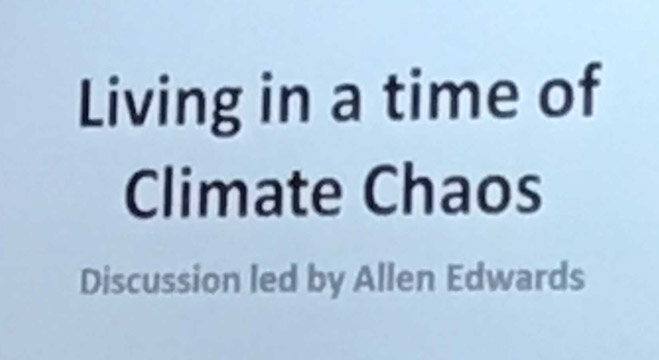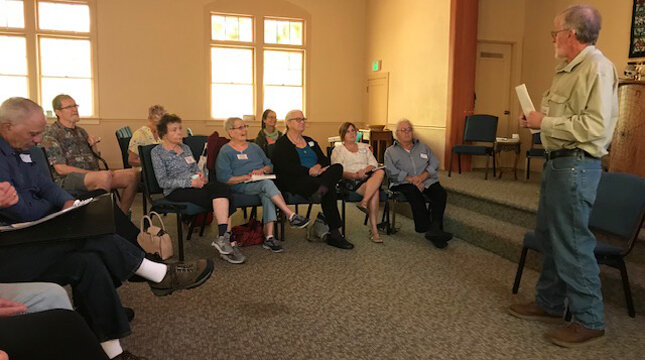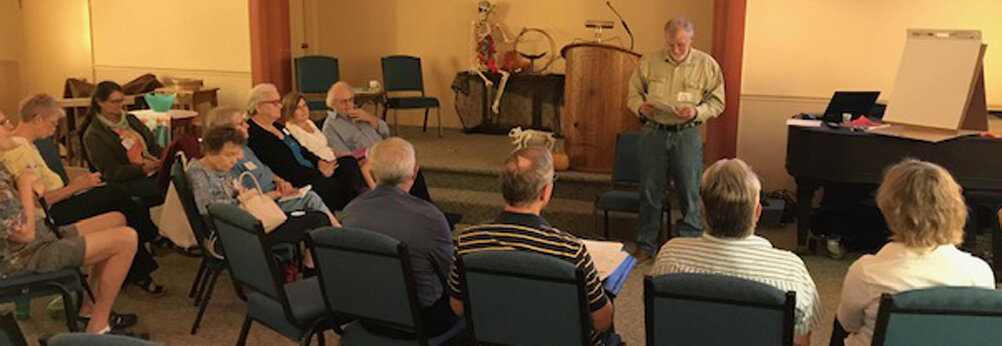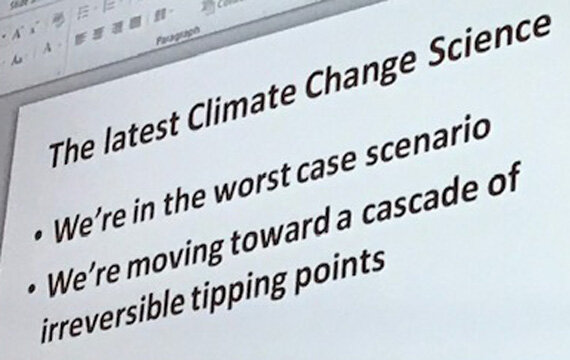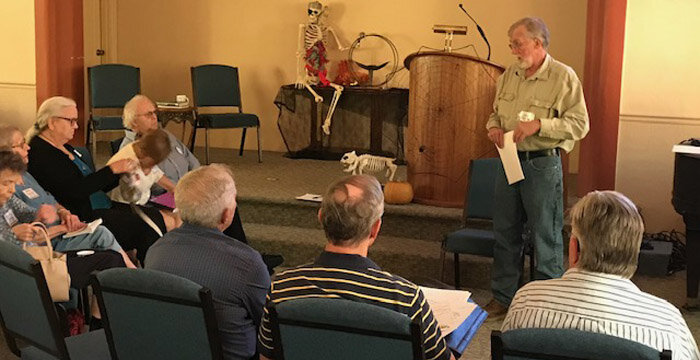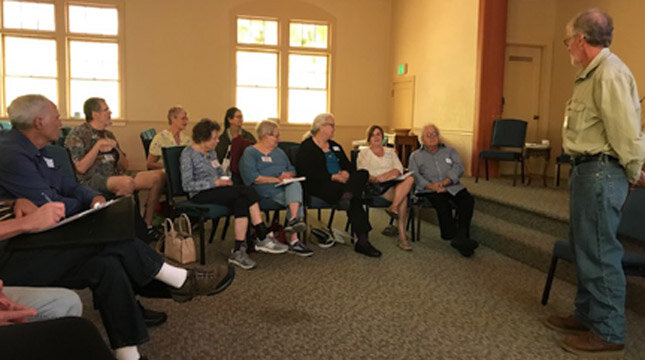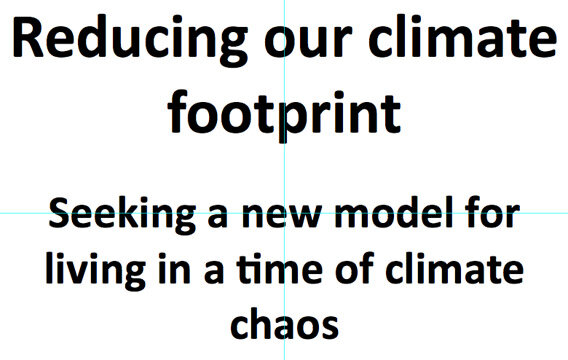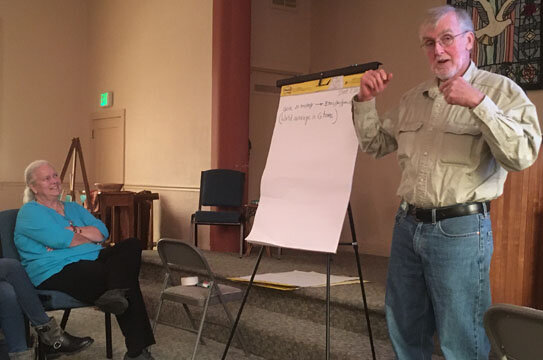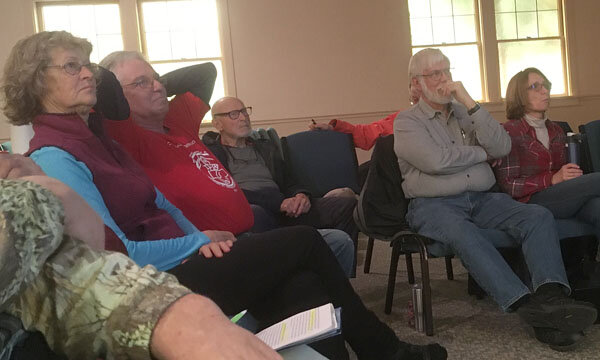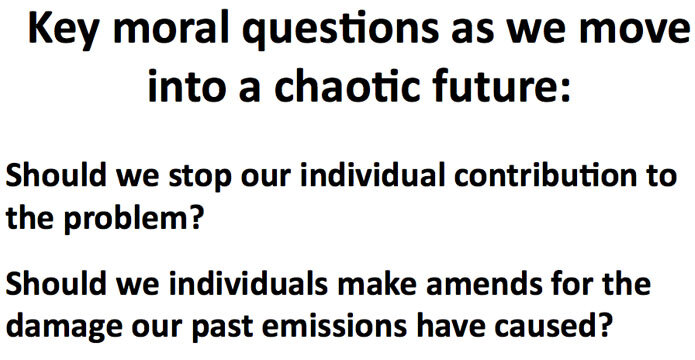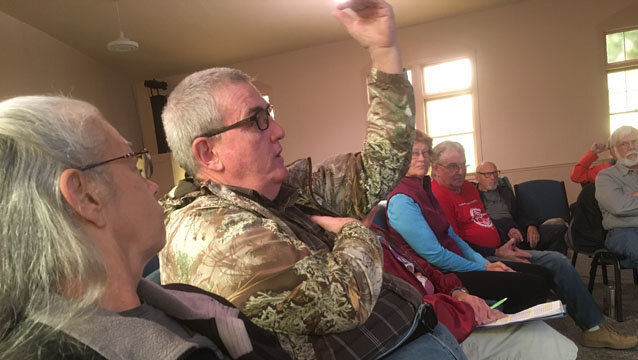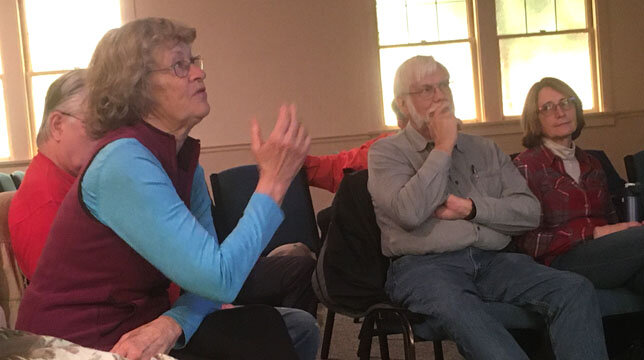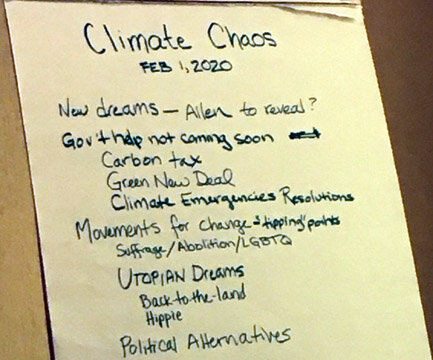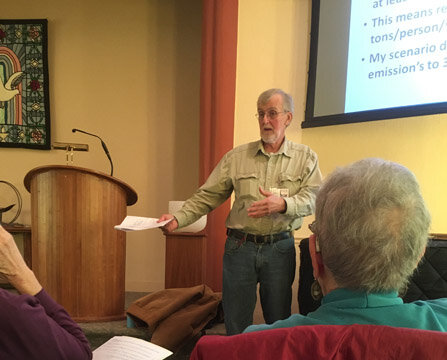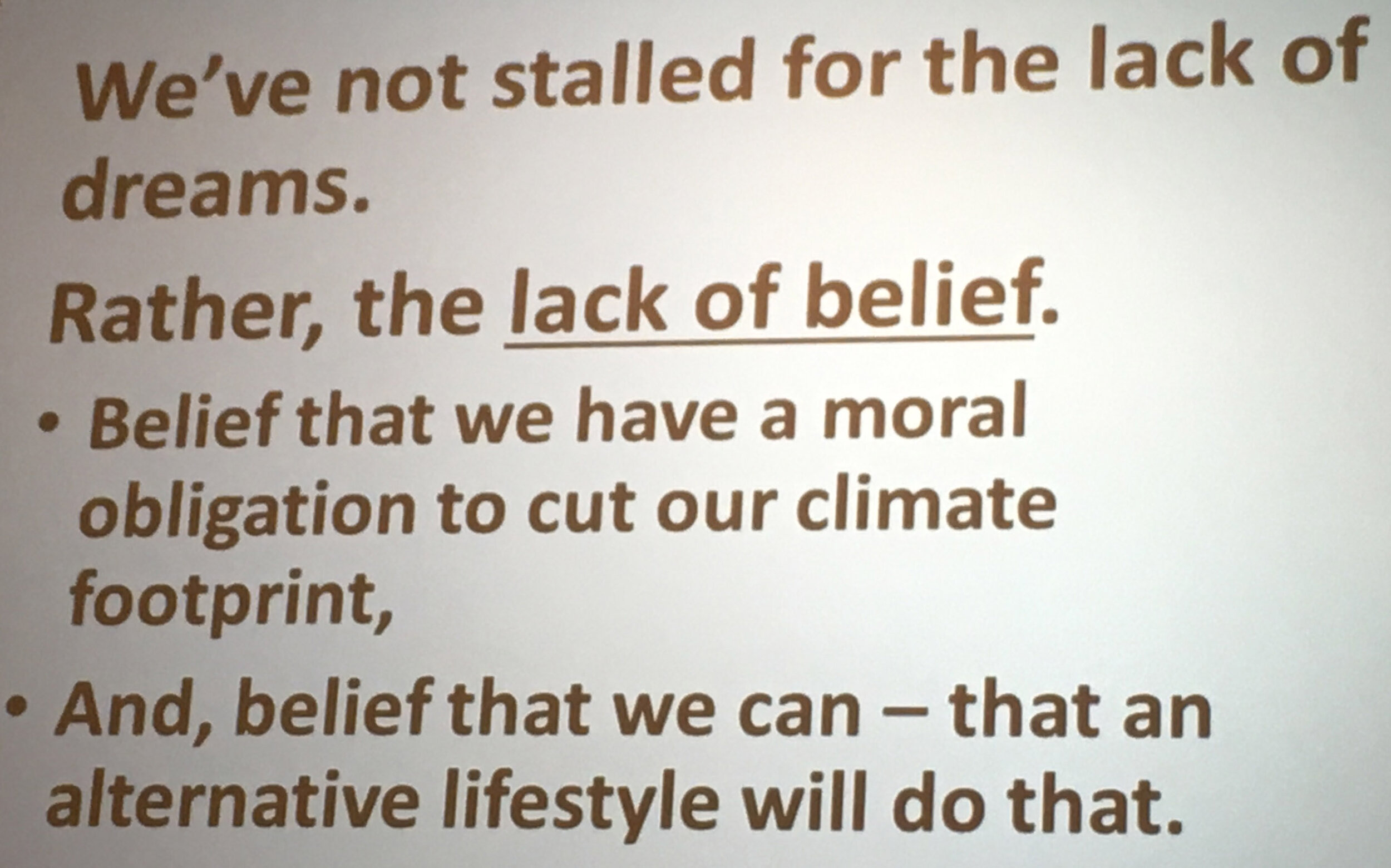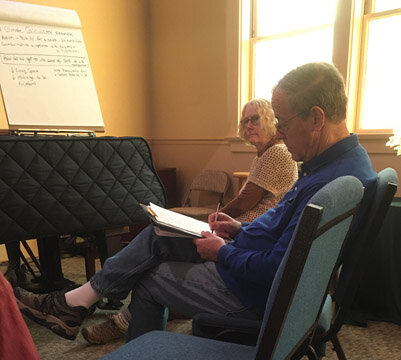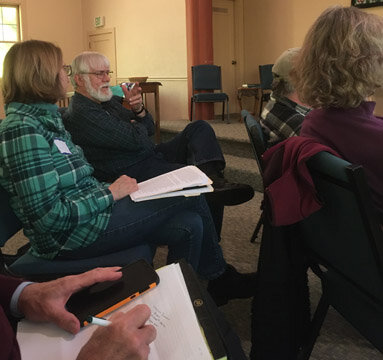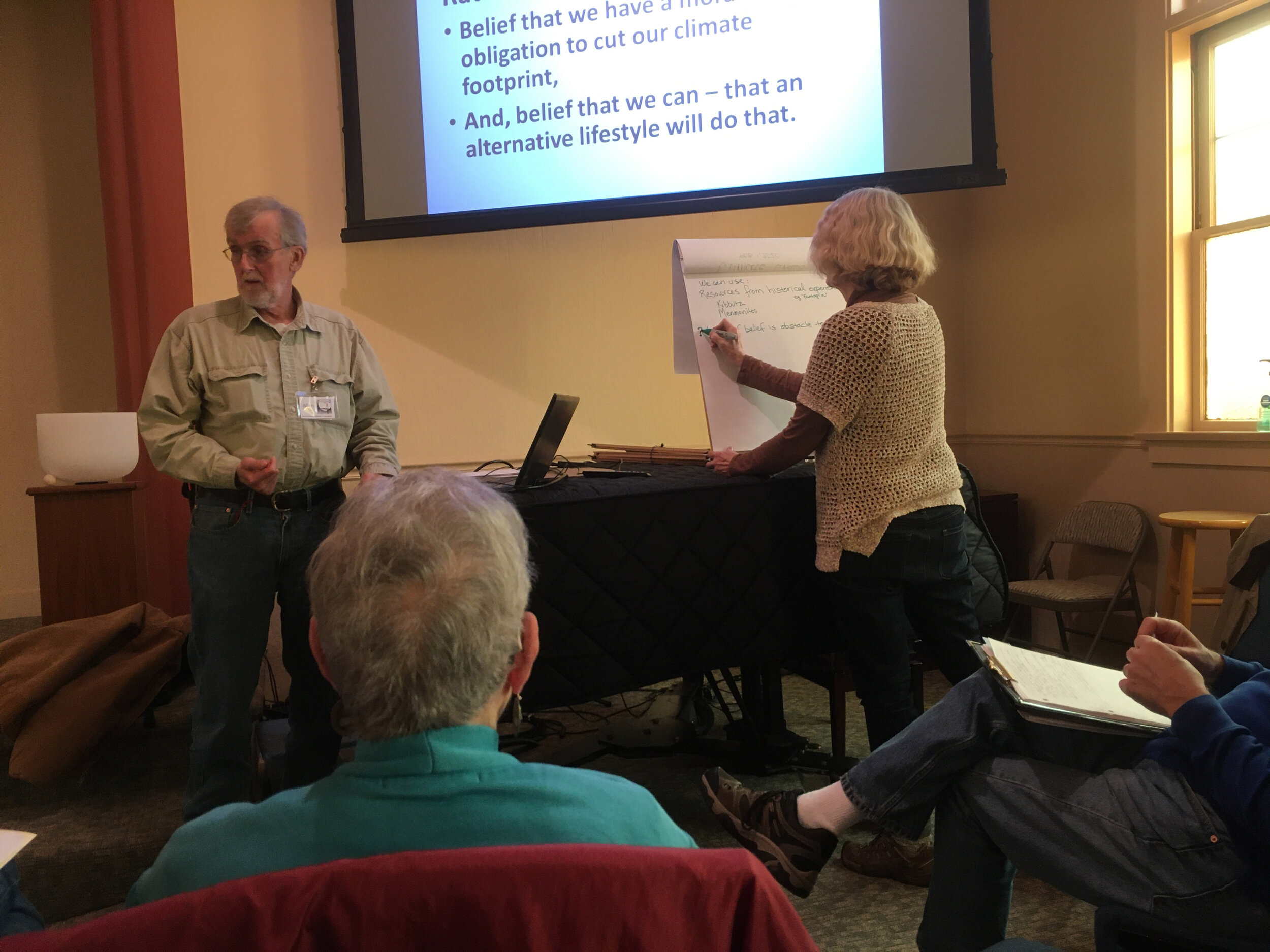Living in a Time of Climate Chaos
In 2019, SFUU hosted a series of Climate Chaos seminars let by retired economist and climate activist Allen Edwards. Due to the Covid-19 pandemic, in person meetings were terminated. To learn more please contact Allen Edwards at edtreefarm@gmail.com, and visit his blog (https://climateunderground.net/).
Questions addressed and discussed in these seminars are deep and provocative, including: What does the latest science tell us about how much warming we have committed the planet to at this point? Who is responsible for the damage that has already occurred or is inevitable? Morally, are amends required of the current high emitters to those who are suffering the most? What is the role of the faith community in facing the crisis, including grief work? What radical shifts (individual vs group/culture/government) are warranted and/or possible given the UN recommended emissions be reduced to an average of 3 tons per year per person by 2030, and to zero by 2050 to avoid the most catastrophic effects of climate change? The discussion were frank and the participants provided each other with support and heart-felt challenges to some current common assumptions.
Click here to calculate your own climate footprint: coolclimate.org.
Click here fore for on-going essays by Allen Edwards tailored for the seminars
Other recommended readings include:
online writing/interviews by Jem Bendel
current writings of Naomi Klein.
The Sad Truth About Our Boldest Climate Target by David Roberts
Our first Living in a Time of Climate Chaos seminar was held on October 26th, 2019. Attendees held a spirited discussion regarding our moral and ethical obligations related to our carbon emissions. More seminars are expected as we grapple with climate activism and our response to climate chaos. If you are interested in reading Allen Edward’s essays on this topic, click here.
The second Living in a Time of Climate Chaos seminar was held on December 7th, 2019. Attendees continued to discuss our moral and ethical obligations related to our carbon footprints. Our next seminar will workshop ideas for re-imagining our lifestyles by considering what we truly value in our lives and how we might still achieve our dream life with lower carbon emissions. If you are interested in reading Allen Edward’s essays on this topic, click here.
The third Living in a Time of Climate Chaos seminar was held on February 1st, 2020. We discussed our desire to make changes in order to live a just life, despite the lack of larger scale action by government, and our need to let go of outcome driven action to just do the right thing. Proposed keys to getting individuals to make necessary lifestyle changes to reduce their personal climate footprints included simple belief in a personal moral ‘obligation’ to the Earth, and the need for community to make positive change. Many of us are hungry for how to get to lower carbon life-style changes. Allen Edwards presented some scenarios that he worked out using the Cool Climate Calculator for an average couple living in Auburn. When you first do a climate footprint calculation, the ‘calculator ‘ will present you with some options for improving your footprint. All of the options offered are technological solutions and will reduce the footprint, but not enough to bring it down to the levels needed to attain the UN-recommended levels. Using the cool climate calculator, Allen was able to reduce the levels most by giving the imaginary Auburn couple lifestyle changes, including some of the following (contact Allen for more details):
living on 1/4 of the space (best done through group living)
cutting down driving distances to 2000-3000mi/year (best done by sharing a car, and errands, with a group)
no air travel
using 100% renewable electricity
cutting way down in goods and services (if you live in a group, then you can share goods, and have community with each other - dining together, game nights, etc.)
cut carbon emissions from food by 90% (this includes driving to the store to get your food, which is a large part of the food footprint)
If you are interested in reading Allen Edward’s essays on this topic, click here..

